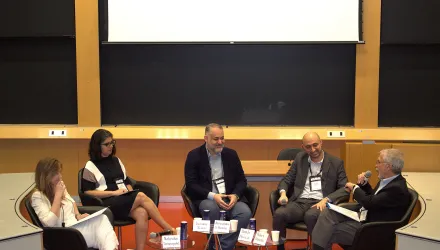9-10 December 1999, Bloustein School of Planning and Public Policy, Rutgers University, New Brunswick, NJ.
Abstract
Boundary organizations are institutions that straddle the shifting divide between politics and science. They draw their incentives from and produce outputs for principals in both domains and thus, it is hypothesized, facilitate the transfer of useful knowledge between science and policy. This paper brings ideas from the social studies of science pertaining to boundary organizations to bear on the study of institutions in environmental policy and science. It summarizes a set of five case studies on candidate boundary organizations in both the domestic U.S. and international context: 1) the Health Effects Institute, jointly funded by the Environmental Protection Agency and the automobile industry to support and review research relevant to air pollution regulation; 2) agricultural extension, which mediates between the needs and interests of local farmers on one hand, and the work of researchers on the other; 3) the Sea Grant program, which provides extension services for mediating between coastal interests and researchers; 4) the International Research Institute for Climate Prediction, which is attempting to create from large climate models information more usable by populations vulnerable to climate change; and 5) the Subsidiary Body for Scientific and Technological Advice, which is a forum for negotiating scientific aspects of the work of the Intergovernmental Panel on Climate Change. The cases, with additional commentary, conclude that the concept of boundary organizations is a useful one for understanding the relationship between environmental policy and science.
“Report of the Workshop on Boundary Organizations in Environmental Policy and Science.” Edited by Cash, David, William C. Clark, Clark Miller and Susi Moser. April 1, 2000







